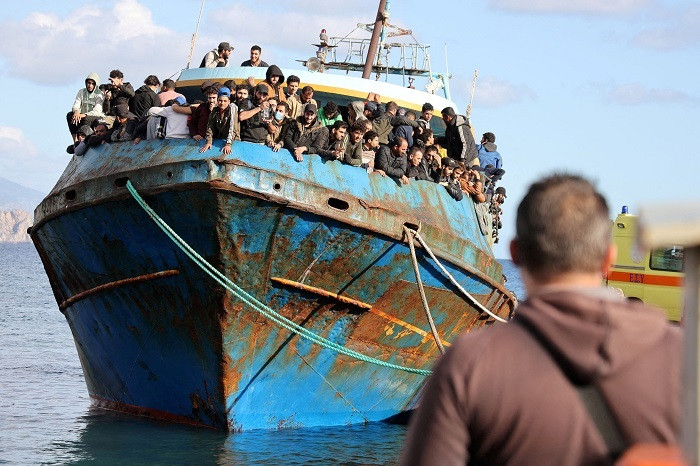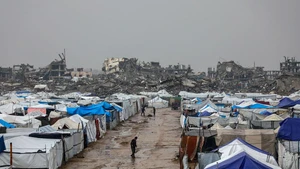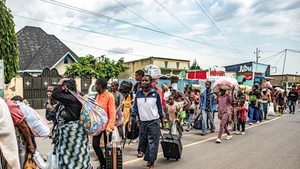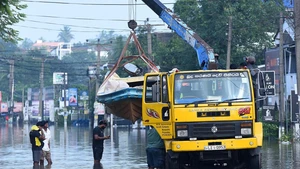As one of the countries shouldering the heavy responsibility for migrants entering Europe, Germany is in a state of “overload” with asylum applications.
Many migrants and refugees, after crossing the Mediterranean to Southern European countries, often move on to Germany or more prosperous Northern European countries to seek asylum. Notably, more than 70% of all refugees arriving in Germany have not been registered, even though almost all of them had previously arrived in another country in the EU. Cities and communities across Germany are sounding the alarm about the growing number of people arriving in the country, leaving localities unable to provide housing and schools for migrants.
Germany alone received a third of all asylum applications from EU countries in the first half of this year. Since the beginning of the year, the country has received more than 250,000 asylum applications, more than in the whole of 2022. At the peak of the refugee crisis in 2015-2016, more than 1 million refugees came to Germany. In addition to refugees, Germany also received more than 1 million Ukrainians who fled due to the current conflict.
The burden of migrants has made public sector resources in German localities more difficult.
The burden of migrants has made public sector resources in German localities more difficult. German President Frank-Walter Steinmeier has admitted that accepting refugees is at the limit of the country’s capacity. He called for border controls and fair distribution of migrants within the EU. To limit the number of people coming to Europe, the German leader believed that stricter control and supervision were needed at the EU’s outer border.
In the context of having to stop the wave of migrants to avoid a recurrence of the 2015 crisis, Germany has increased border control measures. The country is coordinating with Austria to implement additional border security measures. Germany also agreed with Switzerland and the Czech Republic on common border controls and enhanced border controls with Poland. On October 16, Germany increased the number of checkpoints along its eastern and southern borders, to control the increasing number of illegal immigrants.
According to the Federal Ministry of the Interior, Berlin has notified the EU of its plan to set up checkpoints at border gates with the Czech Republic, Poland, and Switzerland, to prevent human traffickers and irregular immigration cases. Germany also informed the EU about extending border control with Austria for 6 months, from November 12, a measure that was applied during the 2015 migration crisis. Federal Minister of the Interior Nancy Faeser stated, that border police will apply new control measures flexibly, depending on the situation.
The ministry has also presented the government with a new bill on the deportation and repatriation of migrants, considering this an important step to limit irregular migration into Germany. To achieve this goal, the draft law will provide for more effective procedures for the repatriation of migrants. The bill will also help deport criminals and people who are dangerous to society, more smoothly. Currently, the number of migrants having to be repatriated this year has increased by 27%, compared to the same period last year.
German authorities believed that it was necessary to stop the cruel business activities of human traffickers, who disregard other people's lives for lucrative profits.
Germany’s new border controls come in close cooperation with Polish and Czech authorities and will supplement mobile police patrols that carry out checks on cars crossing the border or those seeking to cross into Germany on foot. German authorities believed that it was necessary to stop the cruel business activities of human traffickers, who disregard other people's lives for lucrative profits.
According to Federal Minister of the Interior Nancy Faeser, about a quarter of migrants arriving in Germany came through smugglers, using dangerous routes across the Mediterranean and through forests along the Balkan route and they often must pay thousands of USD to human trafficking networks.
Facing the wave of irregular migration, Germany has introduced a series of measures. However, to significantly reduce illegal migration, Germany believed that a common European asylum system is still needed, in which the EU's external borders need to be strictly controlled. The EU's common asylum system could bring a more orderly migration process to the bloc and reform of EU migration policy should be implemented quickly, to avoid a repeated migration crisis in Europe.
















